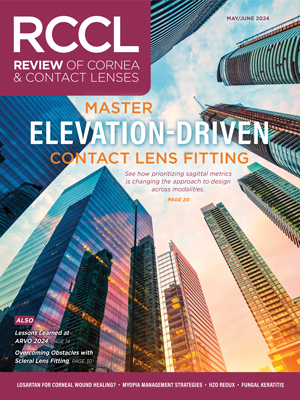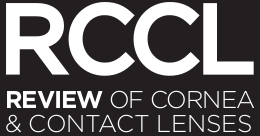 As healthcare providers, we are charged with the responsibility to care for our patients’ well-being. Keeping their best interest in mind often leads to a balancing act. On the one hand, we must use diagnostic tests to aid in analysis and treatment. However, these tests can sometimes be an unnecessary drain on the insurance provider, or the patient. Trying not to tip the scale is a challenge. And remember, there are times when a diagnosis with no known treatment only adds to patient anxiety.
As healthcare providers, we are charged with the responsibility to care for our patients’ well-being. Keeping their best interest in mind often leads to a balancing act. On the one hand, we must use diagnostic tests to aid in analysis and treatment. However, these tests can sometimes be an unnecessary drain on the insurance provider, or the patient. Trying not to tip the scale is a challenge. And remember, there are times when a diagnosis with no known treatment only adds to patient anxiety.
I recently had the pleasure of reading an intriguing book, Over-Diagnosed: Making People Sick in the Pursuit of Health. This is a must-read for all healthcare providers. The authors, H. Gilbert Welch, M.D., M.Ph., Lisa Schwartz, M.D., and Steven Woloshin, M.D., are practicing physicians who present a convincing message that our healthcare system promotes aggressive and, at times, unwarranted testing and over-prescribing of medications due to sometimes unscientific and arbitrary guidelines and targets. They cite numerous examples where some patients are subjected to unnecessary surgery for ailments that will not harm or kill them.
Welch and colleagues point out that many individuals or groups receive incentives for testing and treating diseases. Healthcare providers can partially sustain their practices by over-screening and over-diagnosing. Drug makers and device manufacturers reap benefits of broad screening and early treatment for abnormalities discovered during over-testing that may never develop beyond the “phantom stage.” The legal system that imposes liability on healthcare professionals for the relatively rare missed diagnosis results has an amplifier effect on an already over-burdened healthcare system.1
We have seen a lowered threshold for the treatment of many diseases or illnesses, such as osteoporosis, hypertension, hypercholesterolemia and diabetes—to name a few. Medicine has defined an increasingly large number of diseases based on target guidelines that are developed by experts who have biases and potential for monetary gain from pharmaceutical and medical device makers. In fact, patients with a “milder disease” may not benefit at all by being treated or medicated; in fact, they may instead only experience the side effects.
Cancer screening is a topic area admirably addressed. Current screening methods do not wholly differentiate between aggressive cancers with significant mortality from those that are often times only indolent in nature (i.e., prostate and thyroid cancer).1,2 Welch and colleagues show the scale of over-diagnosis for several types of cancers. Their graphs illustrate the rate of detecting certain cancers, and mortality rates in this book seem to show similar trends. As the rate of newly detected cancers grows rapidly, the mortality rate stays the same. Simply stated, the difference in the slope between the two lines illustrates the rate of over-diagnosis.1
When you evaluate the benefits of disease screening, focus on the change in absolute mortality rates between tests and controls. And, should the difference be material, a close analysis of how many people had to be over-diagnosed and harmed by over-treatment to achieve the improvement in mortality rate is important.1
Another fascinating discussion by Welch and colleagues relates to DNA testing. Will lower cost testing add to the over-diagnosing problem? Virtually everyone’s genes will show susceptibility to some ailment, with little that can be done despite the knowledge.1
Welch and colleagues provide a compelling argument against excessive screening and over-testing in asymptomatic patients raising an important point in improving healthcare today. The net result is reduced cost at no real expense to patient care, because some patients may be harmed by unnecessary intervention.2 The authors welcome more data via clinical trials that show any benefit in choosing one screening method or diagnostic standard over another.1
I highlight this publication not to draw strong comparisons to eye care, but, if you look closely, there are a few comparisons that can be made. We will continue to provide good care to the best of our ability with deep concern for patients. But, the next time you question whether a certain test you are considering carries any real diagnostic value, you might just skip it.
Remember,“If you look, you shall find!” The question is, then what?
1. Robertson N, Lion G, Eskildson L, Fine R. Amazon Reviews on Overdiagnosed: Making People Sick in the Pursuit of Health. 2011.
2. Welch G, Schwartz LM, Woloshin S. Over-diagnosed: Making People Sick in the Pursuit of Health. Boston: Beacon Press, 2011.


